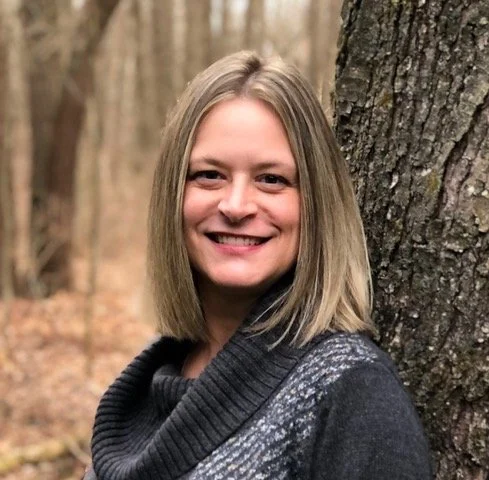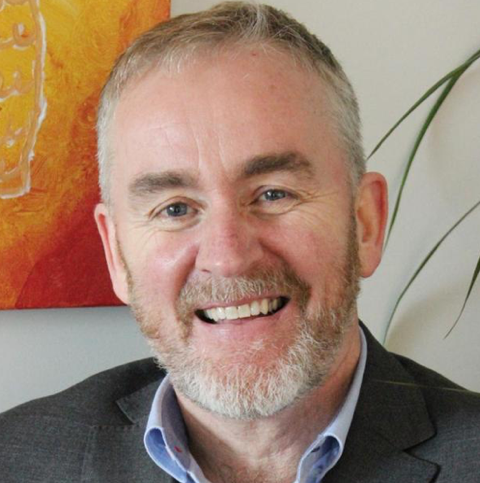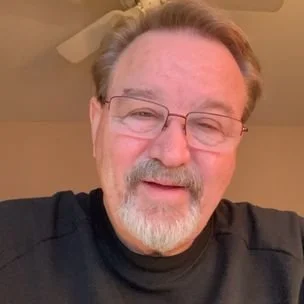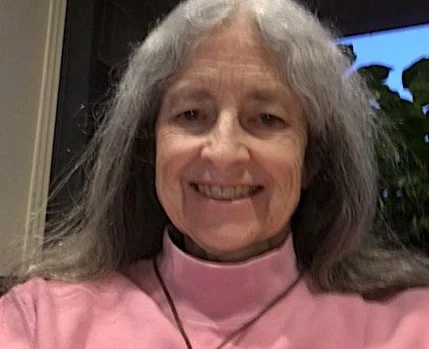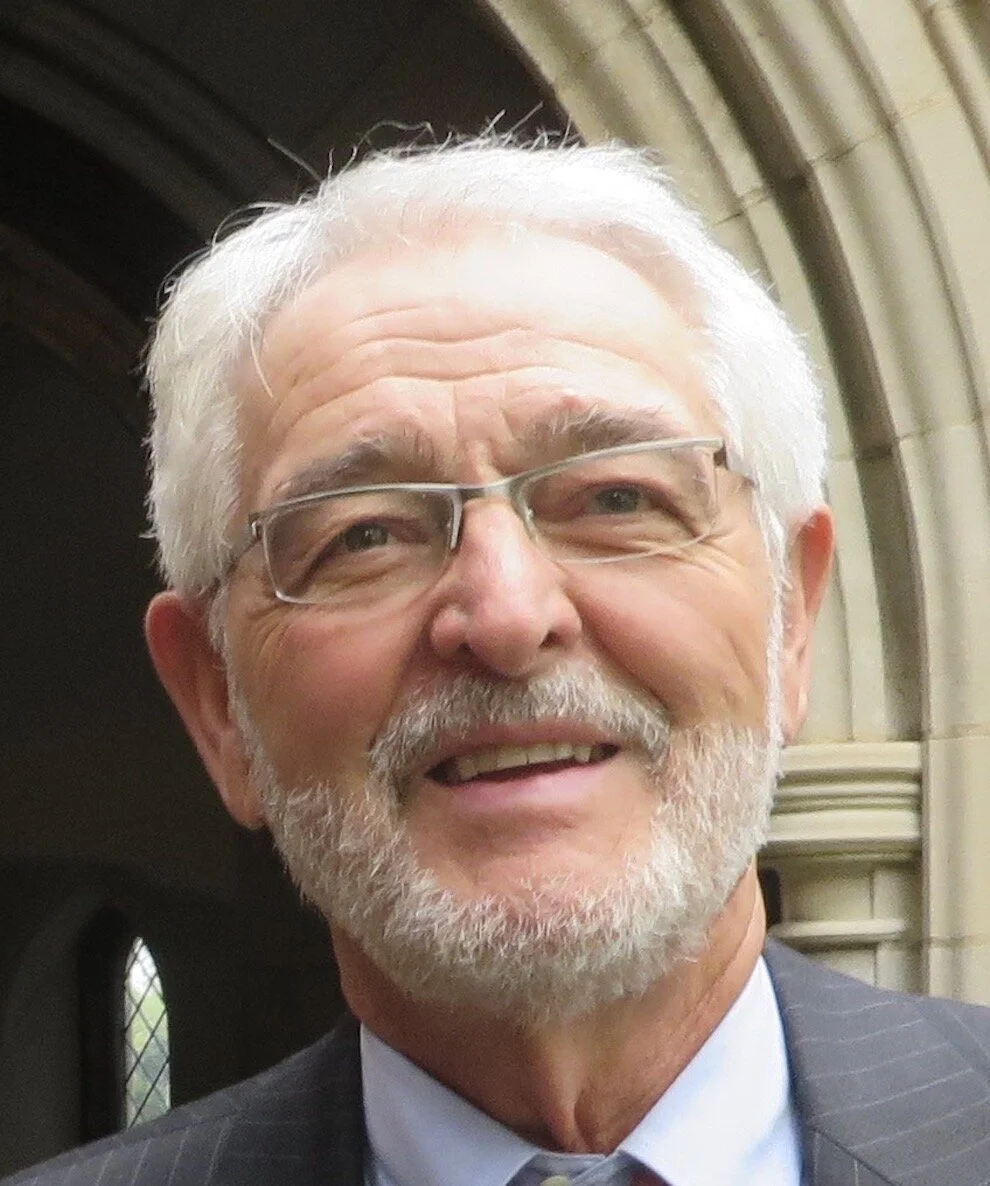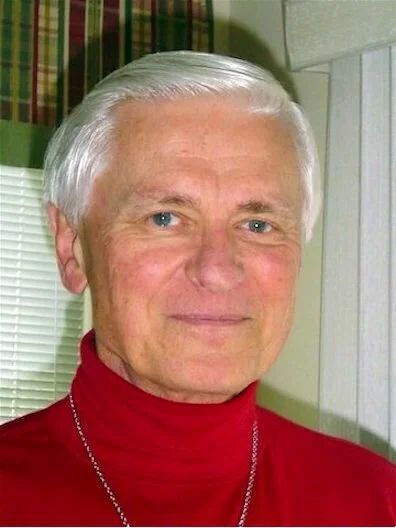Why I Am Not A Christian Zionist
Many thoughtful Christian leaders have looked carefully at Christian Zionism and been surprised at what they find there. And they have decided they cannot follow this teaching. We asked a number of these people to write for us. In each case, the writers explain how and why they changed their thinking. In one case, we asked a Jewish writer to reflect with us as well. Watch this space for additional essays.
Scroll down to see our essayists
Karen Weeks
“In 2023, when Hamas attacked Israel on October 7, I was initially confused, thinking it was just another flare-up in the Middle East. However, as the situation escalated and Israel launched a counterattack on Gaza, I began researching. A friend loaned me books she’d read about the region, and one of them, “Blood Brothers” by Father Elias Chacour, an Arab Christian Palestinian priest, opened my eyes. Chacour had lived through the Nakba in 1948 and had spent his entire life advocating for peace between Palestinians and Israelis. His story moved me deeply. I learned that Palestinians, including Arabs, Christians, and Jews, had lived in harmony in the region for centuries before the 1948 UN partition, which gave 55% of Palestine to a Jewish state, despite Jews only representing about 30% of the population.”
Karen Weeks is a Therapist, Counselor and Spiritual Director. She has worked for over 15 years as a licensed professional counselor in both Ohio and Michigan, and is Owner of Soul Care Solutions, PLLC.
Karen’s full essay (click here): Karen Weeks essay.
Ian Stackhouse
“As someone who imbibed Christian Zionism in the early eighties during a six-month university scholarship in Israel – time in Ashkelon being part of that – I am able to answer quite readily why I am not, or no longer, a Christian Zionist. Quite apart from the apocalypticism it encourages in mainstream Israeli politics, as well as its oppressive stance towards Palestinians, which I shall get to, the main reason I did a U-turn on the matter, over the next couple of decades, was because I could no longer reconcile the territorialism of Christian Zionism with the broad sweep of Christian faith.”
Ian Stackhouse is the Senior Pastor of Millmead, Guildford Baptist Church, UK. He also lectures at various seminaries in the UK and abroad and is the author of several books including, more recently, Praying Psalms (Cascade 2018), and Letters to a Young Pastor (Cascade 2019).
Ian’s full essay (click here): Ian Stackhouse essay.
Jeff Sajdak
“A few years later [in 2012], I took up my faculty role at Calvin Seminary, where a colleague invited me to look at the Bible in new ways. He helped me to see that it is by faith in Christ that we reckon the descendants of Abraham. (Galatians 3). I saw that the promises to Abraham are fulfilled in Christ, and that the descendants of Abraham by faith seek Christ’s kingdom and righteousness. His kingdom is not of this world. It is not a political or geographical entity. (John 18:36).
My personal hope is that I might be someone who invites others to ask questions, to look more closely and deeply at the Bible and the unfolding story of Israel-Palestine.”
Jeff Sajdak earned his B.A. in Linguistics from the University of Minnesota. He received his Master of Divinity and Doctor of Ministry degrees from Bethel University in St. Paul, MN. He is ordained in the Christian Reformed Church in North America, where he served as a pastor for twenty years in Iowa and Michigan. He currently serves as Dean of Students at Calvin Theological Seminary.
Jeff’s full essay (click here): Jeff Sajdak essay.
Wendall Ward
“It was after my formal education and through my continuing study that I began to see the Church as the fulfillment of God’s covenant people. The overall witness of the Old Testament and studies in Romans, Galatians and other New Testament texts convinced me that God’s redemptive plan was unfolding through Jesus Christ and his Church. This point of view became the lens by which I would see the physical return of Jews to Palestine.”
Wendall Ward graduated from Palm Beach Atlantic College with a B.A. in Religion & Philosophy and the New Orleans Baptist Theological Seminary with a Master of Divinity degree in Biblical Studies. He is a military veteran and an ordained Baptist minister. He served various Churches in Mississippi, Maryland and North Carolina as a Senior Pastor for 35 years until his retirement in 2017. He now resides in Plant City, Florida.
Wendall’s full essay (click here): Wendall Ward essay.
Colin Chapman
Photo: IVP Press
“After I was ordained in the Episcopal Church in Scotland, I began my career as a pastor in a church in Edinburgh. Eighteen years of my life since then have been in the Middle East, where I worked with the Church Mission Society - mostly in Cairo, Egypt, and Beirut, Lebanon.
My first trip to the region came in 1960, when I was simply a tourist. I spent a month in Jordan (which at that time included the West Bank) and a month in Israel. At that time, I had no special sympathies either for the Jews or the Arabs, and I was blissfully unaware of the theological controversies about the fulfillment of prophecy related to the Jewish people and the Holy Land.”
Colin Chapman is the author of many best-selling books on Israel/Palestine, including Whose Promised Land? (current edition: 2015) and Whose Holy City? Jerusalem and the Israeli-Palestinian Conflict (2004). His most recent book is Christian Zionism and the Restoration of Israel: how should we interpret the scriptures? (Wipf & Stock, 2021). He has also written about Christian responses to Islam in Cross and Crescent: responding to the challenges of Islam (2007). He is now enjoying retirement in England.
Colin’s full essay (click here): Colin Chapman essay.
Susan Brogden
“In 2016, my admiration led me to visit Israel… Israel didn’t disappoint, but I was as troubled as I was entranced by what I saw there. Although we touched only the margins of all that Israel would prefer remain hidden to her tourists, I saw enough... I returned home with eyes newly opened. My admiration for Judaism was undimmed, but my love affair with modern Israel was over.”
Susan Brogden is a lifelong member of Disciples of Christ congregations and an active participant in congregational life. She is retired from a career in higher education and non-profit administration, including twelve years with CISV, Inc., an international organization dedicated to peace and cross-cultural friendship among children. In early 2018, she served a three-month term with the Ecumenical Accompaniment Program in Palestine and Israel (EAPPI). She currently serves as a Regional Coordinator for Churches for Middle East Peace, working in her local community to broaden Americans’ understanding of the Israeli/Palestinian conflict. Her hope is for a just peace for both Israelis and Palestinians. A graduate of Purdue University and Miami University, she lives in southwest Ohio with her husband.
Susan’s full essay (click here): Susan Brogden essay.
Carole Monica Burnett
“Soon, my father, an intensely patriotic Naval officer, enlightened me about the savage Israeli attack on the communications vessel U.S.S. Liberty, in which 34 Americans were slaughtered and many more injured. Doubts arose in my mind—especially since a Biblical History course in college had taught me that I should never lose sight of the historical context in which Scripture texts were written; for example, verses in Isaiah referring to the Jewish return from the Babylonian Exile in the sixth century B.C. should not be detached from ancient history and applied to modern times. Did this mean that I should question the presumed right of Zionist settlers to help themselves to the land of Palestine?”
Carole Monica Burnett earned the M.T.S. (Master of Theological Studies) degree at Wesley Theological Seminary in Washington, DC, and the Ph.D. in Early Christian Studies (Greek and Latin Patristics) at the Catholic University of America, also in Washington, DC. In 2014, when she became a grandmother, she retired from teaching Church History at the Ecumenical Institute of Theology in Baltimore. But she still works part-time as the editor of an ever-expanding collection of early Christian writings translated into English from Latin, Syriac, and ancient Greek. She and her husband reside in Maryland.
Monica’s full essay (click here): Carole Monica Burnett essay.
Fred Martin
“In 1975 I started work on my Master of Divinity degree. I do not recall any particular stress on supporting modern Israel, but neither do I remember any serious questioning of the views of prophecy teachers such as Lindsey. The tenets of Christian Zionism were like the air evangelical Christians breathed; they were simply assumed without any examination or discussion. The Bible taught that God would return the Jews to their ancient homeland, and all Christians should provide unquestioning and unconditional support for them. In the early 1970s I did not know of any evangelical Christian who thought otherwise.”
Fred Martin graduated summa cum laude from Vanderbilt University with his B.A degree. He received both his Master of Divinity and Doctor of Divinity degrees from Trinity Evangelical Divinity School. Ordained by the Evangelical Free Church of America, he served as pastor of a church in northern Minnesota for 36 years. He now resides in Eugene, Oregon. He is the author of “American Evangelicals & Modern Israel: A Plea for Tough Love.”
Fred’s full essay (click here): Fred Martin essay.
James Beck
“My mind went immediately to Jesus, who welcomed and encouraged the Gentiles he encountered. I wondered what he would say to someone asserting the exclusive right of one group of people to the Holy Land. I also thought about Romans 4:11 where Paul says that the children of Abraham will now include both Jews and non-Jews. I thought about passages like Ephesians 2:19 where even “strangers” are now to be counted as members of the household of God. This coming together of Jews and Gentiles is one of the most important prophecies of the New Testament, and I realized I believed you could indeed be a Christian if you rejected Christian Zionism since it seemed to run counter to Biblical prophecy as I understood it.”
James Beck is a retired commercial banker in Cincinnati, Ohio. He is active in his church, Armstrong Chapel United Methodist, where he currently serves on the Finance Committee. He also enjoys serving on the boards of not-for-profit organizations in his community. In February of 2010 Jim visited Israel and Palestine while on a week-long trip with an ecumenical group investigating Israel’s occupation of Palestine. Jim was particularly moved by the non-violent resistance demonstrated by the Tent of Nations. Following that visit, in October 2010, Jim was one of the co-founding members of United Methodists for Kairos Response which, while pursuing the goal of peacefully ending the occupation, has taken decisive action in support of a just peace for both Israelis and Palestinians. At the annual conference of the West Ohio Conference of the United Methodist Church held in June 2011, Jim presented a resolution to divest from three companies which were complicit in Israel’s occupation of Palestine. The resolution narrowly passed. Jim now serves on the Advisory Council of Friends of Tent of Nations North America, and has been host to Daoud Nassar, Executive Director of Tent of Nations, on several of his trips to Cincinnati, helping to arrange presentations to churches, schools and smaller Bible study groups. Jim is a husband, father, grandfather and Cincinnati Reds fan.
James’ full essay (click here): James Beck essay.
Graylan Scott Hagler
“It is imperative that we remind people that God is not a real estate agent, and does not assign, sell, or direct the occupation of lands. We also must remind people that God is not a homicidal maniac that wants the extermination of some for the benefit of others.”
The Reverend Graylan S. Hagler has served as Senior Minister of Plymouth Congregational United Church of Christ in Washington, DC, since 1992. Prior to his arrival in Washington, he pursued active ministries in Chicago and Boston. In all of these cities, he has organized, advocated, marched, and mobilized on behalf of the poor, the homeless, the addicted, the unemployed, and victims of discrimination. A graduate of Oberlin College in Ohio, he earned the Master of Divinity degree at the Chicago Theological Seminary in 1979.
Graylan’s full essay (click here): Graylan Hagler essay.
Bruce N. Fisk
“In my view, theologies of privilege are not merely presumptuous. They are dangerous. If Christian Zionists wish to invoke Genesis 12:3 or Exodus 19:5-6 or Isaiah 44:1 or Romans 11:1 and the like, in order to defend divinely-ordained, concentric circles of chosenness, I shall return the favor by quoting verses that celebrate God’s particular love for the marginal, the meek, the outcast, the poor, the Canaanite. If Dietrich Bonhoeffer called us to view the world from below and to put ourselves in the place of the vulnerable, I would invite us to read the Bible from below, and thus to grieve with those who grieve, to honor victims of dispossession, and to resist theologies of privilege and exceptionalism.”
Bruce Fisk (PhD, Duke) is a distinguished New Testament scholar who served on the faculty of Westmont College (California) for almost 20 years. During that time he directed Westmont’s international study program in Israel. Today he lives in Peru and is a Senior Research Fellow with the Network of Evangelicals for the Middle East (NEME) and writes regularly on Israel, Palestine, and Christian Zionism.
Bruce’s full essay (click here): Bruce Fisk essay.
David Crump
“One morning as I read Paul’s letter to the Romans, I was struck by the apostle’s words in Romans 4:11 and 16: ‘So then, he [Abraham] is the father of all who believe but have not been circumcised, in order that righteousness might be credited to them…Therefore, the promise comes by grace and may be guaranteed to all Abraham’s offspring — not only to those who are of the law but also to those who are of the faith of Abraham. He is the father of us all.’ (NIV)”
“Paul’s words hit me like the proverbial ton of bricks! Why had I never noticed this before? Paul had just redefined the nature of ‘Israel.’”
David Crump began his career working with InterVarsity Christian Fellowship and then as a pastor in a church in Salt Lake City, Utah. He completed a PhD in New Testament studies and soon was hired at Calvin University in Grand Rapids, Michigan, to join their faculty. David taught at Calvin for 18 years and established himself in academic circles as a leading scholar. His book, Knocking on Heaven’s Door (2006) is perhaps the leading book on prayer in the New Testament. In this essay David explains his own family roots in fundamentalism and its attendant Zionism. And he goes on to explain what changed his mind.
David’s full essay (click here): David Crump essay.
Gary Burge
“This Arab pastor told me that even though I thought I had been to the Holy Land a dozen times, I had only been there once. I had been on the “tourist trail” and never gone astray. He was right. This tourist trail kept people from seeing behind the scenes... But now I had peeked behind that curtain. And there was no going back.”
Originally from Southern California, Gary Burge was an undergraduate at the University of California, Riverside, and The American University of Beirut, Lebanon. He attended Fuller Theological Seminary and King's College, The University of Aberdeen, Scotland. After 25 years on the faculty of Wheaton College (Illinois) he joined the faculty of Calvin Theological Seminary (Michigan) in 2017. Gary speaks widely in churches and conferences both in the United States and in various countries. He has traveled extensively, particularly in the Middle East. He is ordained in the Presbyterian Church, USA, and served as a military chaplain (USNR). For over 15 years he was a regular teacher at Willow Creek Community Church in South Barrington, Illinois.
Gary’s full essay (click here): Gary Burge essay.
Mark Braverman
“And here is the wonderful, miraculous irony – my search for what it meant to be a Jew today brought me to a Palestinian Anglican priest… It was grace that brought me to Palestine to meet my purported enemy. Like Jacob reunited with Esau, when I met these brothers and sisters on the other side of the wall of separation we had built, I saw the face of God.”
Mark Braverman devoted his professional career to working with groups and individuals undergoing traumatic stress. Returning to the Holy Land in 2006, he was transformed by witnessing the occupation of Palestine and by encounters with peace activists and civil society leaders from the Muslim, Christian and Jewish communities. He is the author of “Fatal Embrace” and “A Wall in Jerusalem,” and is currently Executive Director of Kairos USA.
Mark’s full essay (click here): Mark Braverman essay.
Thomas Getman
“The Archbishop (Desmond Tutu) stopped his car to say, ‘Thank you for your presence, the years of solidarity, the financial, spiritual and legislative support. (Now) turn your eyes to the Palestinians… You are dismissed from here’! Needless to say, my eyes were opened and my heart set alight!”
Thomas Getman served as an aide to the late Sen. Mark Hatfield. He then held a number of executive roles for World Vision, including director for international relations in Geneva, where he liaised with various United Nations groups and the World Council of Churches. From 1997 to 2001, he was director of World Vision’s programs in Jerusalem, the West Bank, and Gaza. He also served on the board of the U.N. Deputy Secretary for Emergency Relief as the chair of the International Council of Voluntary Agencies. He retired from World Vision in 2009.
Tom’s full essay (click here): Thomas Getman essay.
John Kleinheksel
“I want my life to elevate the new and renewed communities God is raising up here and around the world, where ALL nations are blessed, where help is extended to any in all nations who are hungry, thirsty, strangers, naked, sick or in prison (Matthew 25). I pray and work for the kairos/time when followers of our Lord will be celebrated more for the purity of their purpose than the power of their politics, where goodness floods the old creation, and where right relationships flourish.”
John Kleinheksel has a master’s degree in theology from Western Theological Seminary in Holland, Michigan. In 1975, Kleinheksel participated in 22-day immersion tour of the Middle East sponsored by the Reformed Church of America (RCA). This tour included meetings with religious leaders in Cairo and Jerusalem, a visit to Barj El Barjneh refugee camp near Beruit, and visits to RCA mission sites in Oman, Kuwait and Bahrain. This tour and subsequent tours gave Kleinheksel the opportunity to meet and form bonds of friendship and solidarity with Israeli Jews and Arab Palestinians—bonds which he continues to renew to this day. In 2014 he helped found Kairos West Michigan, an organization providing education and advocating for a just peace in Palestine/Israel.
John’s full essay (click here): John Kleinheksel essay.
An invitation: We seek additional essays from both clergy and laity. If you are interested in contributing an essay on “Why I am Not a Christian Zionist,” please send a short note telling us about yourself to tom.bell@hushmail.com.
